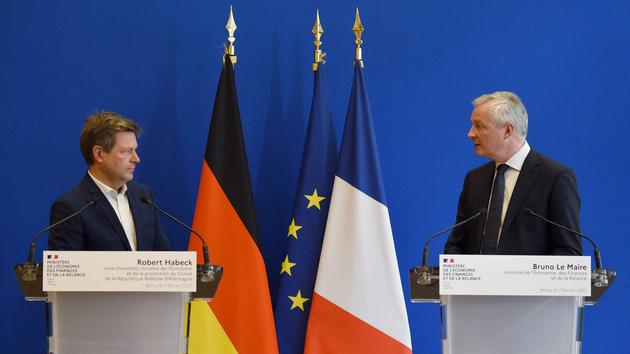The energy crisis is putting Franco-German economic cooperation to the test.
The Minister of the Economy, Bruno Le Maire, and his new German counterpart, the ecologist Robert Habeck, whom he received for lunch at Bercy on Monday, did not hide it.
The host of the place may have congratulated himself on having launched more bilateral industrial cooperation projects over the past two years than in thirty years before, the devil is in the details.
And the unfailing harmony displayed with Habeck's predecessor, the curator Peter Altmaier, leaves room for the expression of dissonances.
"We have very different approaches and differences in terms of trade policy,"
acknowledged Robert Habeck, alongside his interlocutor.
To try to smooth them out, it was agreed to create
"working groups"
intended to
"remove all the technical and financial difficulties"
which could arise on joint projects in hydrogen, semiconductors, supply of health or data storage.
See also
Energy crisis: EDF's major industrial challenges
In the flagship sector of hydrogen, the two countries confront their particularisms on the origin of the immense quantity of energy necessary for the electrolysis process, supplied in France by nuclear power.
Berlin does not intend to give up in its fight against the European Commission's decision to include nuclear energy among the green energies within the taxonomy project, even if it means taking it to court eventually.
Similarly, Berlin refuses French proposals for reform of the European electricity market aimed at disconnecting its price from that of gas.
"This is one of the elements on which France and Germany start from the most distant positions",
insisted Robert Habeck, stigmatizing state intervention in the French market, while he prefers to let supply and demand regulate themselves.
This does not, however, prevent him from advocating for the interconnection of European electricity networks in order to reduce external dependencies.

